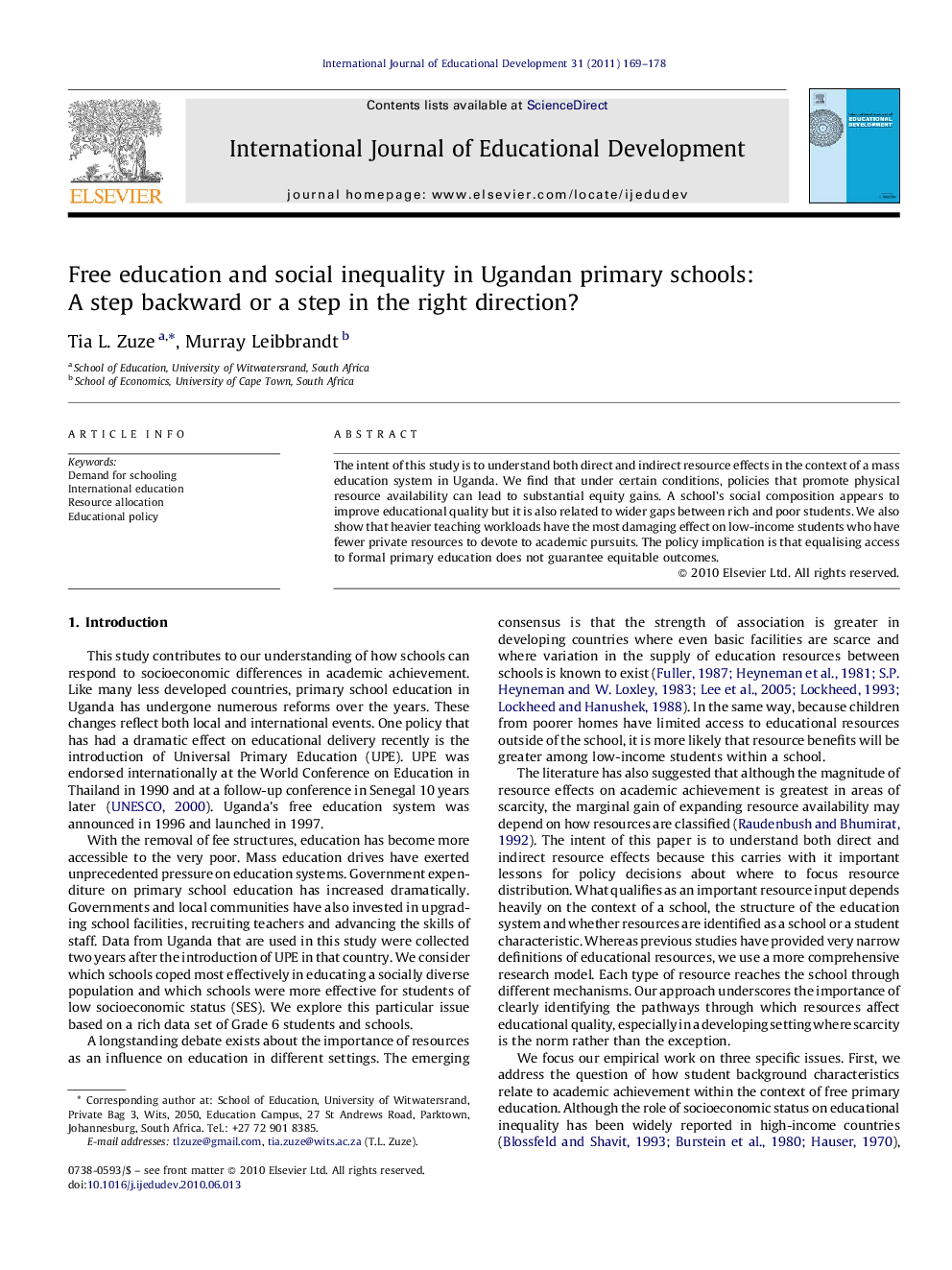| Article ID | Journal | Published Year | Pages | File Type |
|---|---|---|---|---|
| 356191 | International Journal of Educational Development | 2011 | 10 Pages |
Abstract
The intent of this study is to understand both direct and indirect resource effects in the context of a mass education system in Uganda. We find that under certain conditions, policies that promote physical resource availability can lead to substantial equity gains. A school's social composition appears to improve educational quality but it is also related to wider gaps between rich and poor students. We also show that heavier teaching workloads have the most damaging effect on low-income students who have fewer private resources to devote to academic pursuits. The policy implication is that equalising access to formal primary education does not guarantee equitable outcomes.
Related Topics
Social Sciences and Humanities
Social Sciences
Development
Authors
Tia L. Zuze, Murray Leibbrandt,
